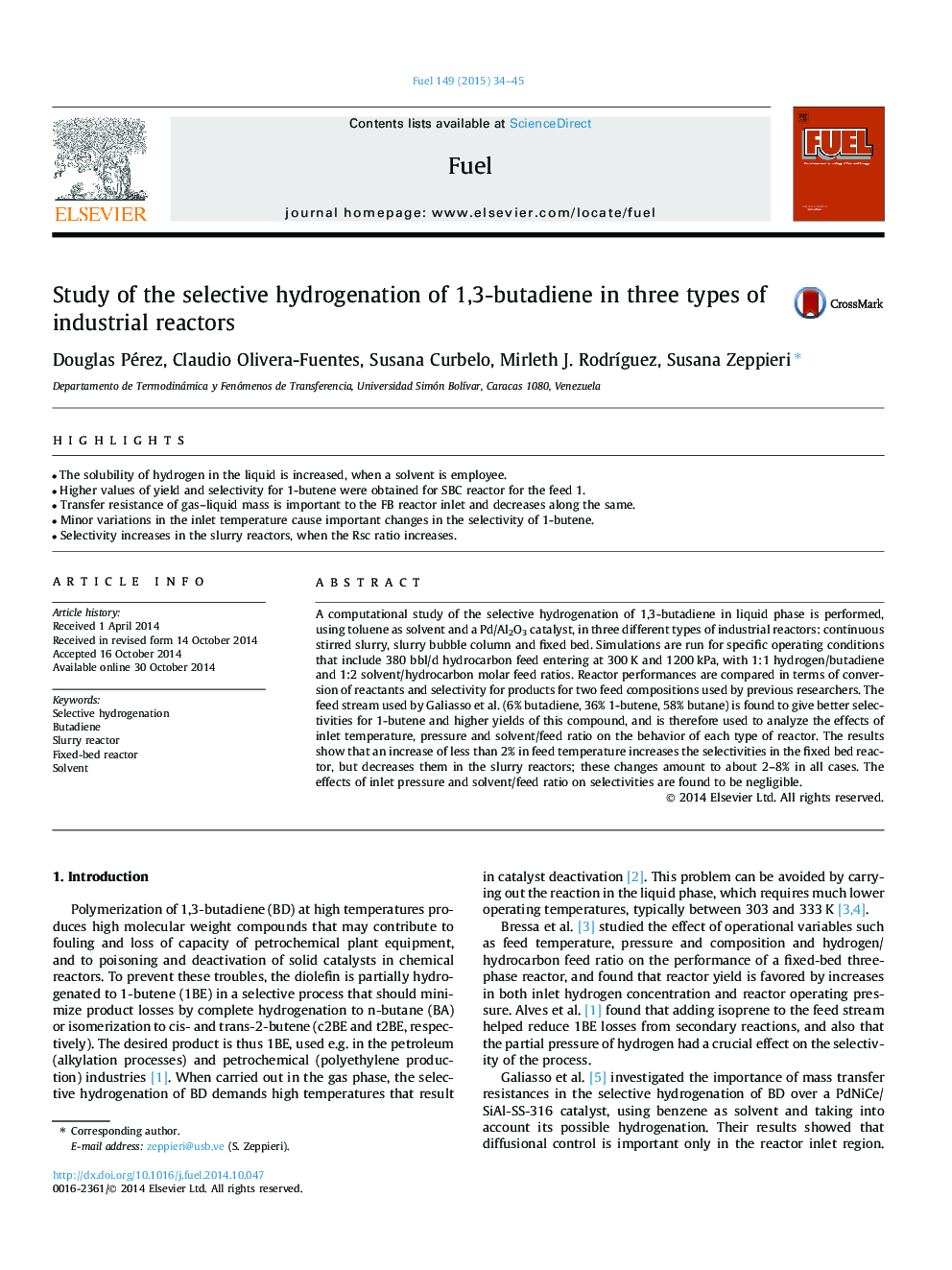| کد مقاله | کد نشریه | سال انتشار | مقاله انگلیسی | نسخه تمام متن |
|---|---|---|---|---|
| 205769 | 461124 | 2015 | 12 صفحه PDF | دانلود رایگان |
• The solubility of hydrogen in the liquid is increased, when a solvent is employee.
• Higher values of yield and selectivity for 1-butene were obtained for SBC reactor for the feed 1.
• Transfer resistance of gas–liquid mass is important to the FB reactor inlet and decreases along the same.
• Minor variations in the inlet temperature cause important changes in the selectivity of 1-butene.
• Selectivity increases in the slurry reactors, when the Rsc ratio increases.
A computational study of the selective hydrogenation of 1,3-butadiene in liquid phase is performed, using toluene as solvent and a Pd/Al2O3 catalyst, in three different types of industrial reactors: continuous stirred slurry, slurry bubble column and fixed bed. Simulations are run for specific operating conditions that include 380 bbl/d hydrocarbon feed entering at 300 K and 1200 kPa, with 1:1 hydrogen/butadiene and 1:2 solvent/hydrocarbon molar feed ratios. Reactor performances are compared in terms of conversion of reactants and selectivity for products for two feed compositions used by previous researchers. The feed stream used by Galiasso et al. (6% butadiene, 36% 1-butene, 58% butane) is found to give better selectivities for 1-butene and higher yields of this compound, and is therefore used to analyze the effects of inlet temperature, pressure and solvent/feed ratio on the behavior of each type of reactor. The results show that an increase of less than 2% in feed temperature increases the selectivities in the fixed bed reactor, but decreases them in the slurry reactors; these changes amount to about 2–8% in all cases. The effects of inlet pressure and solvent/feed ratio on selectivities are found to be negligible.
Journal: Fuel - Volume 149, 1 June 2015, Pages 34–45
